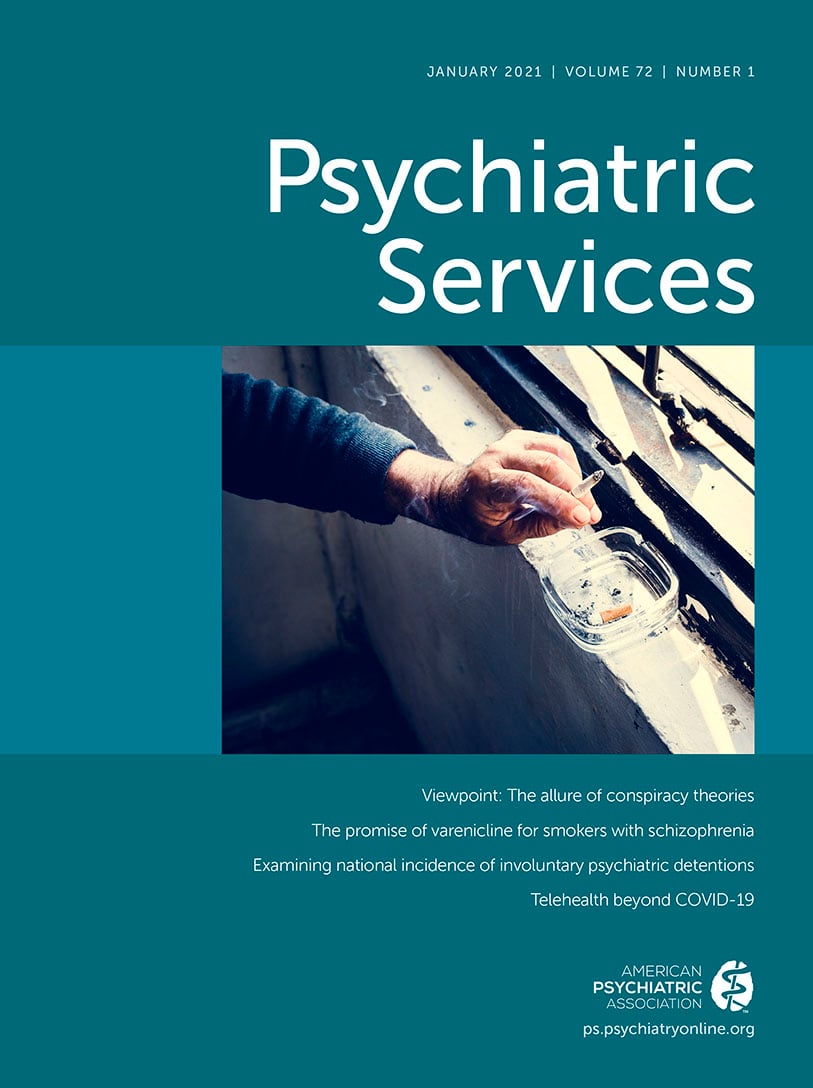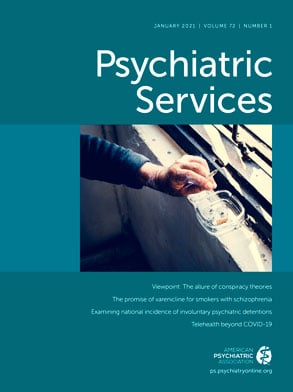Even before the COVID-19 pandemic, the residents of the Bronx had the lowest median household income, encountered more food insecurity, and were more likely to experience barriers to accessing health care compared with residents of other boroughs of New York City. Our clinical mental health research team operating in the Bronx (one of the hotbeds of this pandemic) has witnessed firsthand the struggle not only of those with COVID-19 but also, importantly, of the overlooked population of people with mental illness who, because of social distancing regulations, could no longer access their necessary non–COVID-19 general and mental health care. This diminished treatment availability has coincided with markedly heightened stress as threats to personal well-being mount (e.g., job loss, increased food insecurity, unreliable public transportation, housing loss).
The virus has created financial havoc, especially in lower-income communities such as the Bronx. The impact of COVID-19 on well-being has been devastating, particularly because these communities often lack financial cushions, with many residents living paycheck to paycheck. As clinicians, we are trying our best to address the mental health needs of millions of strained Americans with and without COVID-19 and are operating without a systematic strategy. Given our experiences during the pandemic, we struggled with the following two questions: What are the specific considerations in working with economically compromised Hispanic/Latino and Black/African American populations with mental illness? How can mental health providers and researchers best help?
Considering that people of color compose the majority of the Bronx’s population, this community faces many systemic issues, including the wealth gap, structural racism, and limited health care access. The rates of COVID-19–related mental health concerns are undoubtedly exacerbated by these structural inequities in Black and brown communities in the United States. Many of our veterans at the James J. Peters Veterans Affairs Medical Center in the Bronx are consumed with the financial repercussions of COVID-19, which we believe will immensely affect marginalized communities.
Residents of the Bronx are not only affected by these systemic issues but, with the highest death rates of COVID-19 per capita of the New York boroughs, they will also undoubtedly grapple with additional mental health conditions. Many residents of the Bronx are already disproportionately experiencing grief and posttraumatic stress disorder on top of any preexisting mental health conditions. Before the pandemic, many of our patients experienced stigma in reaching out for mental health services. Now, with increased loss, symptoms, and stressors, many will suffer in silence. As New York City quickly became the epicenter of the virus, access to services unrelated to COVID-19 halted almost overnight, which affected our hospital. Our team observed that basic needs, including mental health care and practical life necessities, were not being met, and these deficiencies were exacerbated by financial hardship. Within our own medical center, clinicians quickly moved to telehealth but encountered significant barriers, including patients without Internet connectivity or computer or smartphone access and lack of privacy because of crowded living conditions. These obstacles critically limit treatment availability and effectiveness.
To address and hopefully minimize the symptoms of our patients, our team attended many webinars focused on optimizing mental health during COVID-19. However, these presentations often prioritized self-care or physical exercise, which may not be effective or practical for populations such as those in the Bronx during the COVID-19 pandemic. Additionally, many opportunities to socialize are online (e.g., Skype, FaceTime, Zoom), but our patients without Internet access could not connect to these resources. Therefore, recommendations for individuals to stay connected ultimately have left behind many Americans, especially high-risk patients.
At the very least, moving forward, it is imperative to consider the needs of marginalized Americans (i.e., those who are often not recognized) in the webinars on mental health care during the COVID-19 pandemic. Recommendations that are widely accessible across racial, ethnic, and income groups are needed. Structural competency and cultural humility are especially important considerations in patient care. Despite these obstacles, our team’s goal was to effectively address both the mental health and practical life needs of our patients through a COVID-19 telehealth group with options to connect via both telephone and video. Through this intervention, titled VA Caring for Our Nation’s Needs Electronically During the COVID-19 Transition (VA CONNECT), we sought to address anxiety and depression related to the virus as well as to create a safe space to discuss and problem-solve frustrations (e.g., limited availability of food, technology issues). Our hope is that the group members will have practical suggestions for other members and that, by attending these groups, individuals will feel supported during these uncertain times. Our team recommends that clinicians recognize the unique hurdles that COVID-19 continues to pose for underserved, marginalized communities and incorporate changes accordingly into their existing research and mental health services.

